Mercy's Wild Diversity
Photo Credit: Shawn Lineman
I first met Mercy Sham back in 2015 on a weekend trip from Portland, Oregon down to Jedediah Smith Redwoods and Patrick Point State Parks in northern California. The trip was hosted by a women’s hiking Meetup group that I had adventured with before. Based on past experience, I was prepared to be the only person of color on the trip. Then Mercy pulled up to the carpool spot. Once she unfolded herself from her car I saw that she was nearly twice my height with a wingspan to match. Her head was shaved except for a plaited mohawk. She was black, queer, and impossible to miss. What a pleasant surprise.
I like to think that our meeting was the result of divine intervention from ancestors who knew there would be some trouble on that trip. Like when one of our fellow car-poolers decided to share her prejudiced views of Native Americans. Or when our campfire bliss was totally ruined by a woman launching a defense of police who had murdered unarmed black men and boys. It did not quell my anger, but it was a relief to have someone else there to simply co-witness and with whom to vent about the sheer caucasity. We were each other’s safe spaces that weekend.
Mercy Sham (top right) and me (bottom left) on the ancestral land of the Yurok people at Patrick Point State Park. Still grinning before our travel companions got too comfortable with their racism.
Fast-forward three years and Mercy, now the founder of Wild Diversity, is determined to create an outdoor community in which she and others who identify as people of color, queer, and/or transgender don’t have to risk exposing themselves to such offenses in order to indulge our love of nature. She just wrapped up her first, very successful summer series of trips and workshops specifically designed for Portland’s POC and LGBTQ communities. “There is a huge difference when you are surrounded by your community in the outdoors,” Mercy says. “You’re not othered in any way. There are 50 basic POC bullet points that you don’t have to explain. It makes for a better journey outdoors. You’re able to open up in different ways, grow in different ways. Even as someone who is leading trips, it feels completely different. I can lead the trip and be a part of the group rather than lead the trip and be stressed out by participants who are really triggering.”
Mercy’s project epitomizes the idea of the personal being political. During a time when the country’s climate has grown increasingly stressful for marginalized people, Mercy came to a personal crossroads. She loved Portland’s beauty and access to the outdoors, but it was not an easy place for people of color to live and with gentrification rapidly advancing, she found people to be less friendly than in the past. Mercy had a decision to make: Should she move to a more diverse city where she might more easily find community? Or should she stay and see what she could do to create community for herself in an area whose natural landscape she had grown to love?
Mercy decided to stay. And by starting Wild Diversity she is not only building community for herself and others, but also building a model of what it looks like to start an organization where people who are often pushed to the margins, rendered invisible, or tokenized within the outdoor sector are front and center as leaders and participants. “I believe we’re living in a world where things were created according to a white male perspective and here we are in 2018 and we’re still following these same rules. We’re just stuck in this little race where it’s hard to get ahead if you’re female, queer, poc….If I always hold myself to those standards and rules, I would just fail again, again, and again. Dancing to the beat of my own drum is why Wild Diversity still exists,” Mercy declares.
What kind of rules are Mercy breaking?
Well, for starters, she ignored the initial advice she was given and founded her own organization instead of attaching herself to something more mainstream. “The fact is that there aren’t any outdoor organizations who do the work that we do and who support the community in the unique way that we do….I know in regard to supporting [LGBTQ & POC] community in the outdoors I am the expert because I share common experience. I am not the outsider trying to save the community. I am part of the community.”
She also bucks the trend of focusing primarily on people of color engaged in high-risk, high-endurance, high-discomfort outdoor activities by not drawing any hard lines around what Wild Diversity considers an adventure. By holding open meetings to engage prospective participants in the planning, Mercy ensures that the schedule of events is community-centered, responsive to their collective interests, and diverse enough to engage a wide variety of people and comfort levels. So this means that yes, they host camping, backpacking, and paddling trips, but they also host day trips to the beach, bird walks, mushroom foraging trips, and how-to workshops for creating your own herbal self-care products.
Wild Diversity adventurers on a POC backpacking trip.
As many POC-led nonprofit leaders discover, there is risk in making your own rules and going it alone. Especially when it comes to money. “Donors didn’t want to support us or work with us because they didn’t see us as a really huge or long established nonprofit. Most of those long-established organizations that donors are looking for in the Portland area are white male-centered and -founded and would not even be able to conceptualize or empathize with the needs of our community.”
Even when they are able to obtain sponsorships, it often comes with a shallowness of commitment and understanding that doesn’t sit well with Mercy. “They are throwing money at the problem, but not actually doing any work. They throw our logo on their sites, but their own spaces are still pretty white. They don’t really associate with people of color or people within the LGBTQ community. They just want to use us to feel better….They just want to give us money. It’s stressful because we could use the funds that they’re offering, but in other ways it just feels like we’re being used.”
While there are still some challenges and dilemmas to work through, the promise and potential of Wild Diversity is undeniable. In short: It provides a model of outdoor life and engagement that was in some ways created as a direct response to the current political climate and is, at the same time, deeply nurturing of self and community. Those of us whose communities are under attack are far more likely than our straight, white counterparts to question why we’re out climbing a mountain instead of attending a rally or to express guilt over our privilege to do so. But Mercy’s project reminds us that leisure and politics do not have to be mutually exclusive. Especially when you are the one whose very existence is under attack. As our black, queer ancestor Audre Lorde once said, “Caring for myself is not self-indulgence, it is self-preservation, and that is an act of political warfare.”
Ways to Support Wild Diversity:
Donate directly to the general operating budget (all donations are tax deductible)




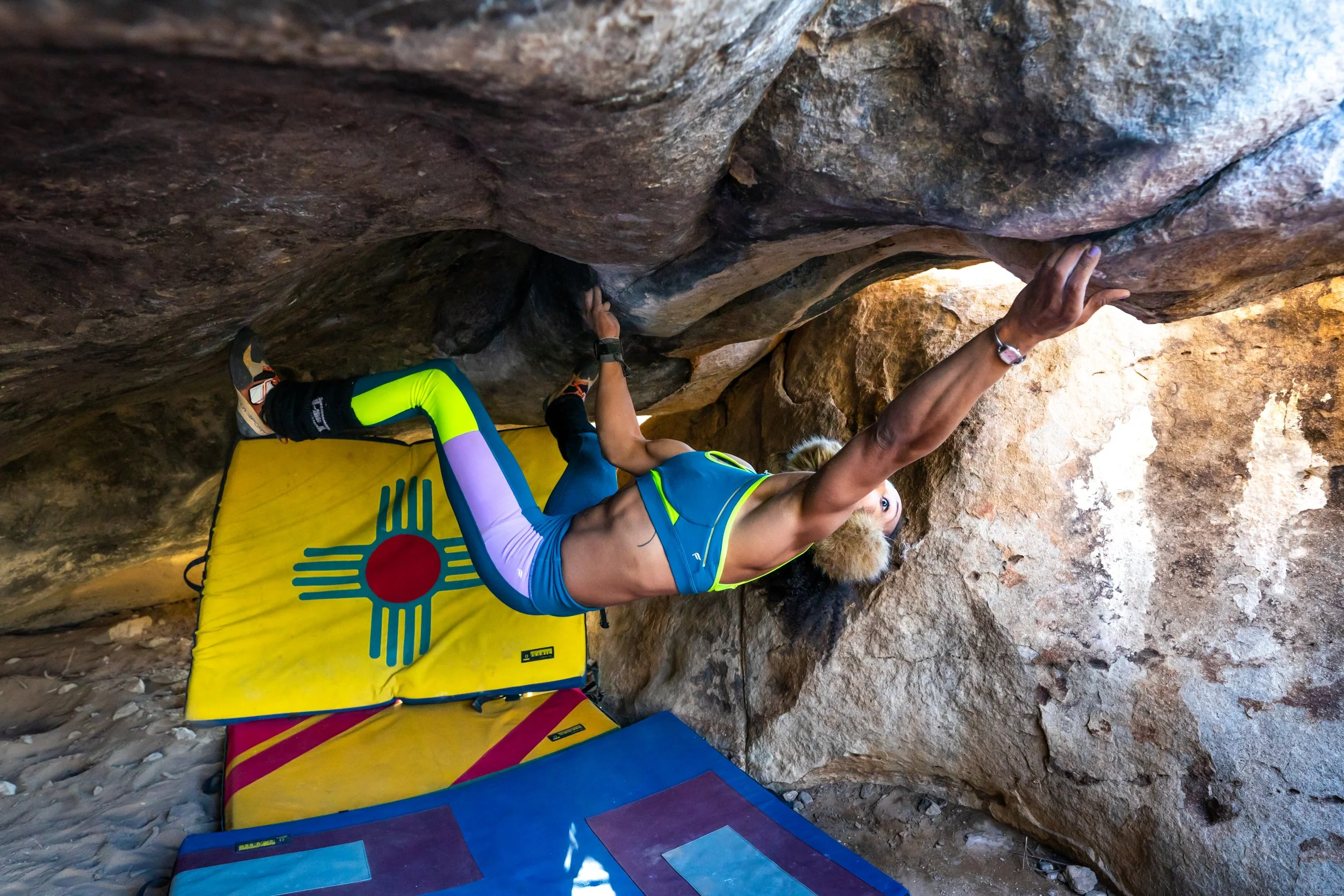
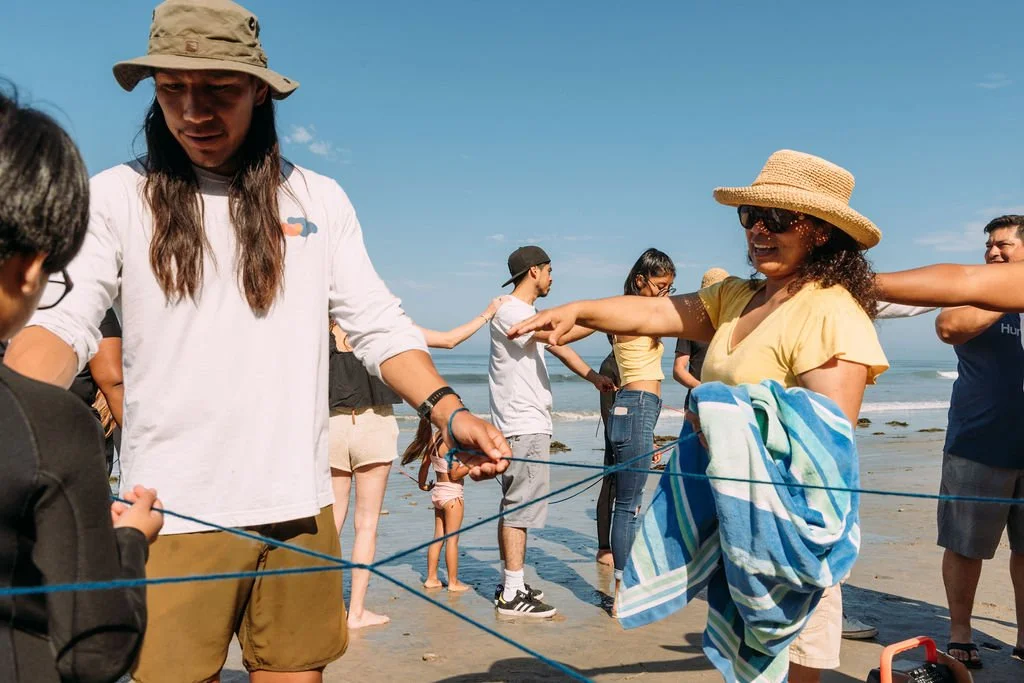

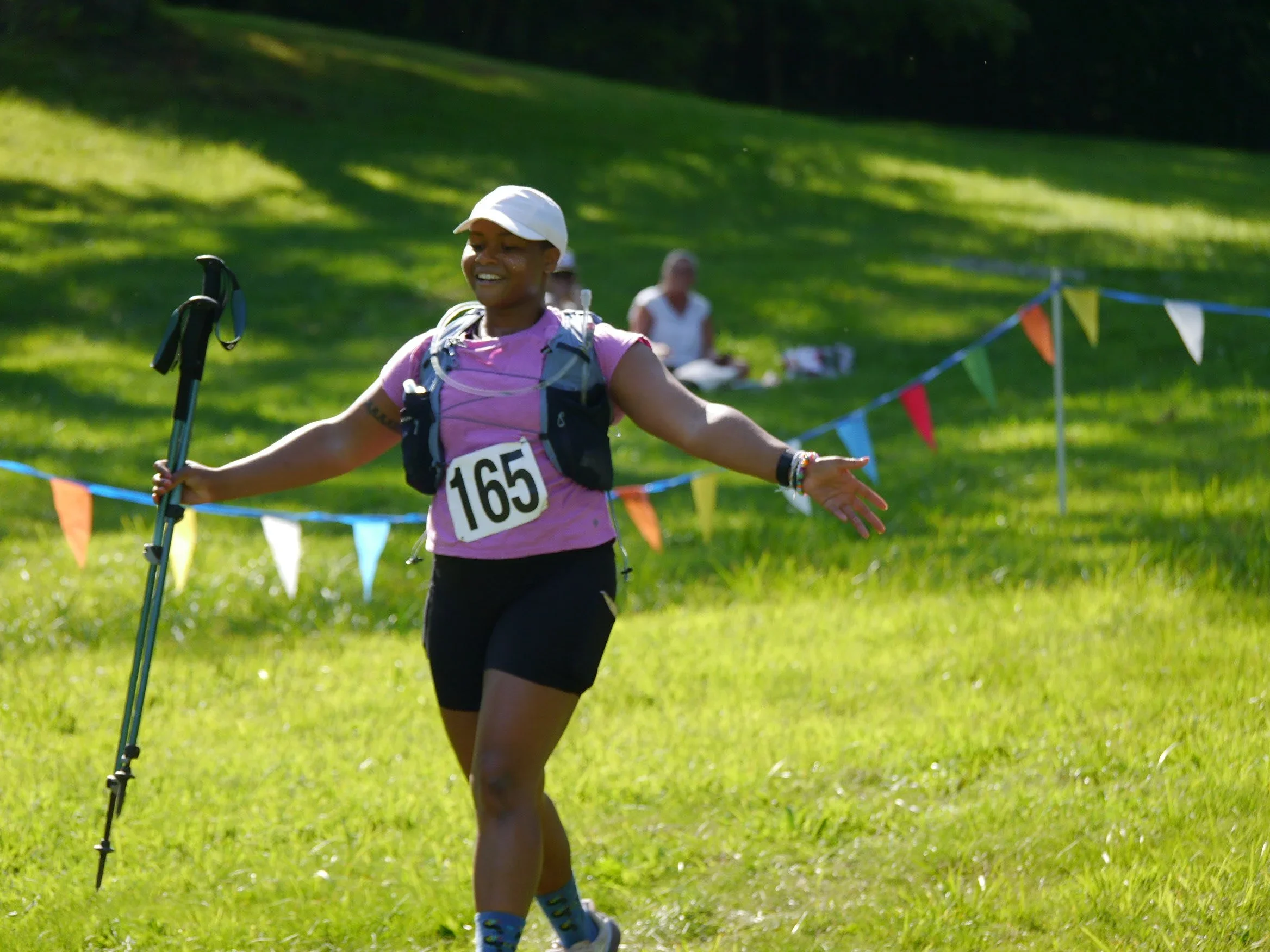


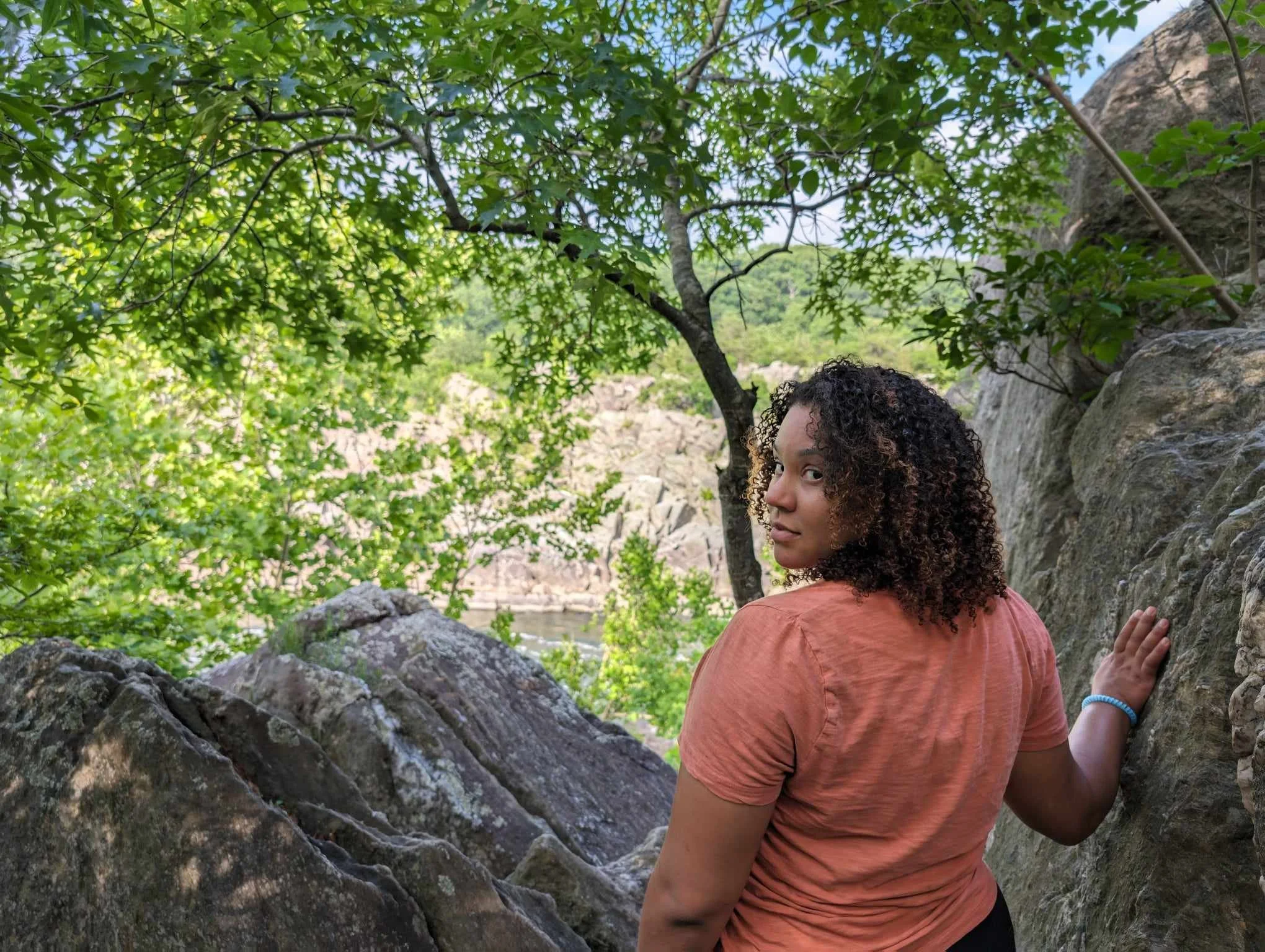

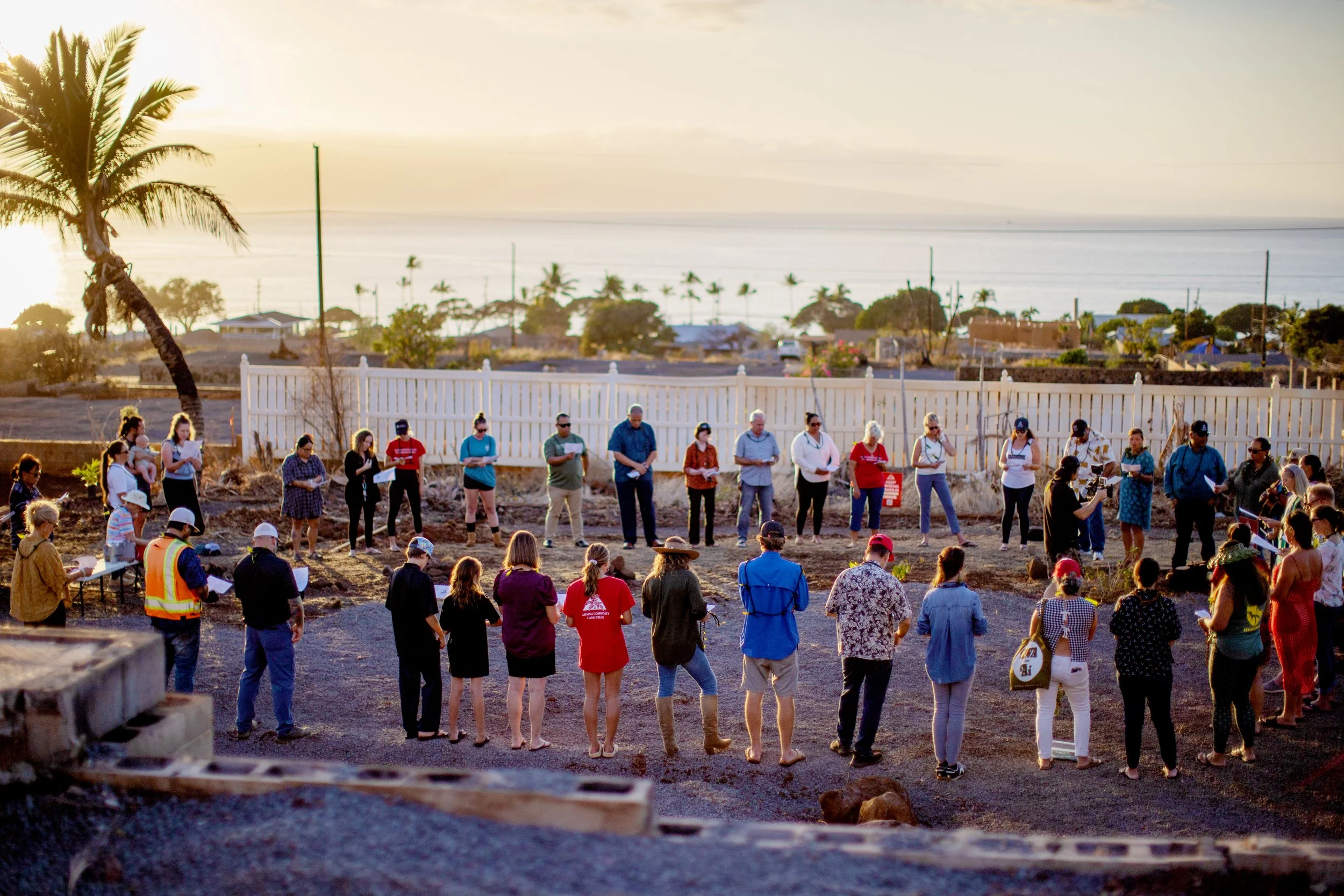
I enjoy how climbing is just as much mental as physical. You rely on body tension and technique, instead of attempting to brutishly muscle my way up the wall. When I can’t figure out a route, I often think about the moves when I’m away from the gym.